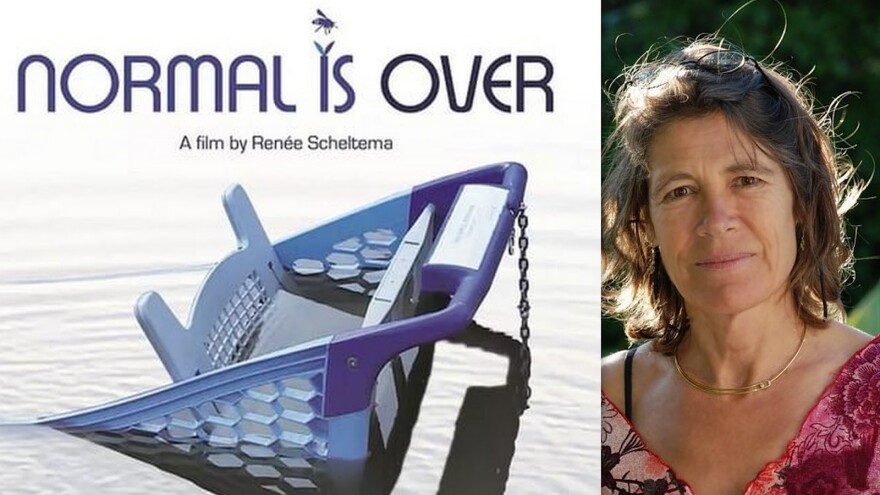Internationally-known documentary maker and environmentalist Renee Scheltema said "Normal is Over."
“The business model that we've had for the past couple of hundred years has worked well for us," Scheltema said. "The Industrial Revolution sort of worked well for us, but it's not really working for us anymore.
"We cannot have infinite economic growth on a finite planet, we cannot keep on turning the last of free nature into products and concrete and think that we will thrive and that's actually the cause of most of the problems."
Her award-winning documentary recently showed at the Normal Theater. The film explored the impact of economic systems on the planet and possible solutions to climate change.
Scheltema encouraged the use of renewable resources and establishing a “circular economy.” She said that is a system designed to minimize waste by reusing resources. With technology developing at a rapid rate, Scheltema said, humans should be developing technologies to create renewable energy.
Scheltema also said we should return to organic farming.
“We need to understand that we have small shallow topsoil on this whole planet and that we need to nurture that and not poison it," she said. "Apart from poisoning the soil, the run-off into the oceans causes ocean acidification, which in turn causes the fish to die and red algae bloom. You know, you can't just poison one piece of the planet and think that it creates more yield because it's a quick instant fix."
Scheltema strongly discouraged the use of herbicides and pesticides. She said these sprays do not just ward off specific species of plants and insects, but disrupt the natural ecosystem.
Scheltema said 70% of insects have gone extinct and in 2015, 40% of animals went extinct.
She said there has been minimal global economic growth during the past few years, yet the wealthy are receiving larger amounts than most.
She urged the creation of what she called "complementary currencies" to address economic inequality and the pressure to externalize costs. She said if you prioritize such things as care for the elderly, environmentally-friendly actions and lower cost healthcare, governments could create credits for those actions.
She said traditional energy extrative or polluting activities should be valued as income negative. Scheltema said this would offer incentives to avoid things which adversely affect human life and the environment.
Scheltema said climate change, pollution, increasing water scarcity, and wealth concentration are all symptoms of a dying planet.
“There are many things you can do, you can put solar energy on your roof, you can vote for Green Party, you can regenerate nature, you can plant trees, and there's so many things that you can do apart from creating a complementary currency, because that's a complicated thing for a lot of people," she said. "It's only starting now, and how they are all going to connect. That's the next challenge."
Scheltema said there is still time to change our habits and aid the planet.
People like you value experienced, knowledgeable and award-winning journalism that covers meaningful stories in Bloomington-Normal. To support more stories and interviews like this one, please consider making a contribution.


